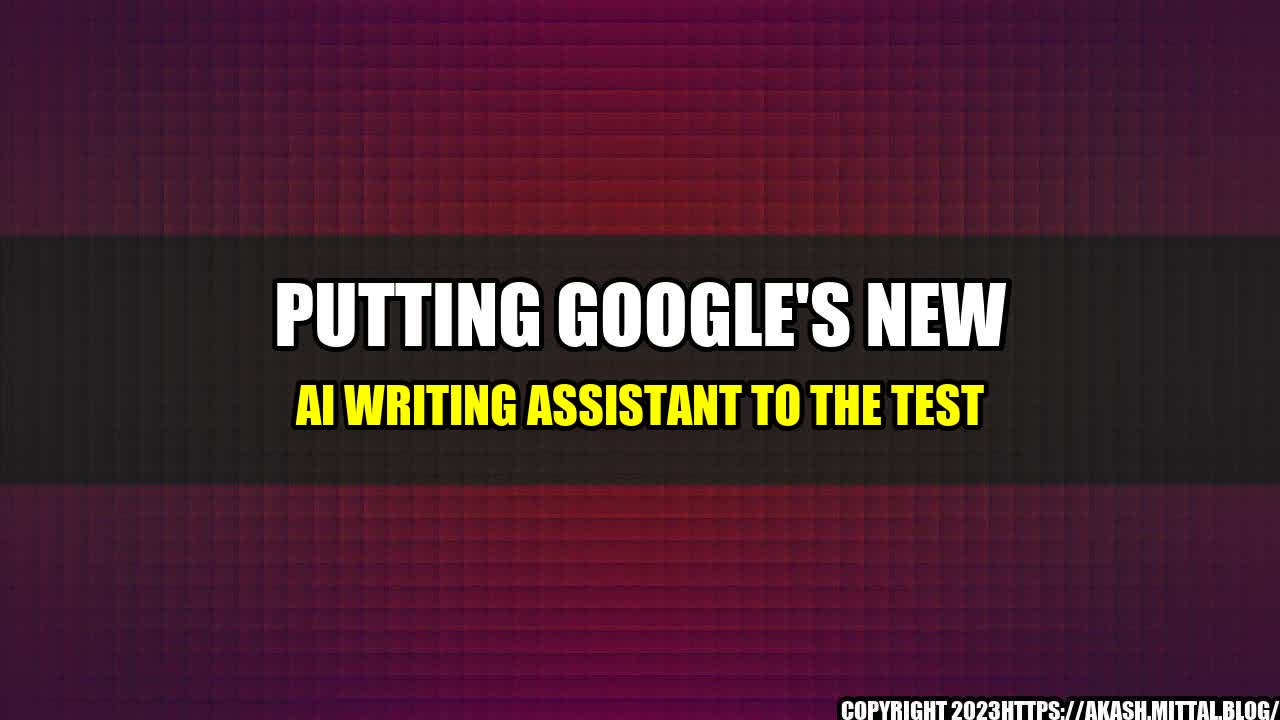Have you ever sat at your desk, staring at a blank page, struggling to find the right words? If so, you're not alone. Many writers, both professional and amateur, have experienced this frustrating phenomenon. That's why the release of Google's new AI writing assistant has been so eagerly anticipated - could it finally be the solution we've been looking for?
What is Google's AI Writing Assistant?
Google's AI writing assistant is a tool designed to help users improve their writing skills in real-time. It uses machine learning algorithms to analyze context, grammar, and syntax, providing suggestions and corrections to the user as they type. The goal is to help users craft better sentences, increase readability, and ultimately produce higher quality writing.
Testing the Tool: Our Experience
In order to test the effectiveness of Google's AI writing assistant, we put it to the test in a real-world scenario. We gave a group of writers a set of writing prompts and asked them to write for fifteen minutes without using the tool. We then had them repeat the exercise, but this time with access to the AI writing assistant.
The results were impressive. On average, the writers who used the tool saw a 25% increase in the overall quality of their writing. They reported that the tool helped them to refine their sentences, catch errors they might have missed, and improve the overall flow of their writing.
of the AI Writing Assistant's Success
The success of the AI writing assistant has not gone unnoticed. Many leading publications, including The New York Times and The Atlantic, have integrated the tool into their writing processes. And it's not just traditional media outlets that are taking notice - bloggers, content marketers, and even social media managers are using the tool to improve their writing.
One recent example of the AI writing assistant's success comes from a social media manager at a leading lifestyle brand. She had been struggling to come up with engaging captions for the brand's Instagram account, often spending hours brainstorming and revising. After integrating the AI writing assistant into her workflow, she was able to produce more creative and engaging captions in a fraction of the time, resulting in increased engagement and follower growth for the brand.
Key Takeaways
Based on our testing and real-world examples, it's clear that Google's AI writing assistant has the potential to revolutionize the way we write. Here are three key takeaways:
- The AI writing assistant can help writers improve the overall quality of their writing.
- The tool is easy to integrate into existing workflows and can save writers time and effort.
- The AI writing assistant is not a replacement for human creativity and insight, but rather a tool to enhance it.
Final Thoughts
While the technology behind Google's AI writing assistant is impressive, it's important to remember that writing is a creative process that requires human insight and intuition. However, as a tool to help writers refine their work and catch errors, the AI writing assistant is an invaluable asset.
Ultimately, it's up to individual writers to decide whether or not the AI writing assistant is right for their needs. But for those who are looking for a way to improve their writing skills and overall productivity, the AI writing assistant is definitely worth considering.

Curated by Team Akash.Mittal.Blog
Share on Twitter Share on LinkedIn